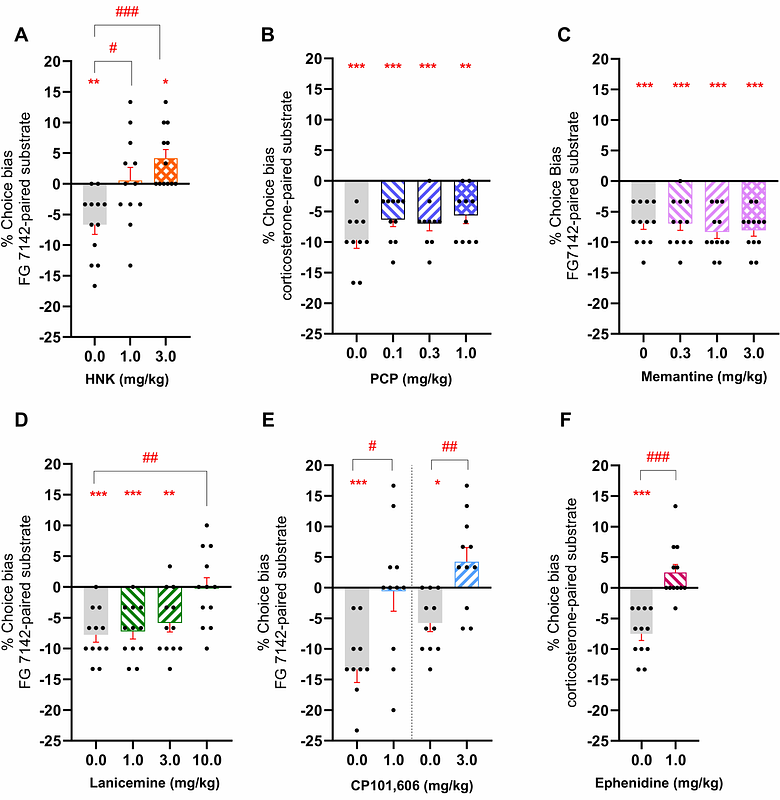Modulation of negative affective biases in male rats may predict the rapid and sustained antidepressant effects of different NMDA antagonists

Modulation of negative affective biases in male rats may predict the rapid and sustained antidepressant effects of different NMDA antagonists
Hinchcliffe, J. K.; Kamenish, K.; Bartlett, J.; Arban, R.; Hengerer, B.; Robinson, E. S. J.
AbstractAffective biases influence cognitive and emotional behaviour and play a significant role in major depressive disorder. We have shown that the NMDA antagonist and rapid-acting antidepressant, ketamine, selectively modulates affective biases, a neuropsychological effect which may underlie its efficacy. Clinical studies with different NMDA antagonists have found mixed effects but the reasons for these differences in efficacy are not understood. This study used a rat model of negative affective biases to investigate if different NMDA antagonists also differentially modulated affective biases. Dose-response experiments using the NMDA antagonists lanicemine, memantine, CP101,606, phencyclidine (PCP) and ephenidine, and ketamine metabolite, (2R,6R)-hydroxynorketamine (HNK), were performed to test their acute and sustained (24hrs) effects, and specificity of affective bias modulation. Our results showed that HNK, PCP, lanicemine, and ephenidine acutely attenuate negative biases. HNK, CP-101,606, and ephenidine's effects were sustained at 24hrs post-treatment with a positive bias observed for HNK and a tendency towards a positive affective bias for CP101,606 and ephenidine. Lanicemine's effects were sustained at 24hrs but only at the highest dose and PCP and memantine had no effects. Considering these findings in the context of clinical observations, we suggest that the ability to induce a sustained modulation of affective biases corresponds with therapeutic effects. The differences in efficacy observed with NMDA antagonists may be related to their ion trapping properties and those with very high and low ion trapping properties are less effective than those with more moderate ion trapping effects such as ketamine or ephenidine or the subunit selective antagonist, CP101,606.